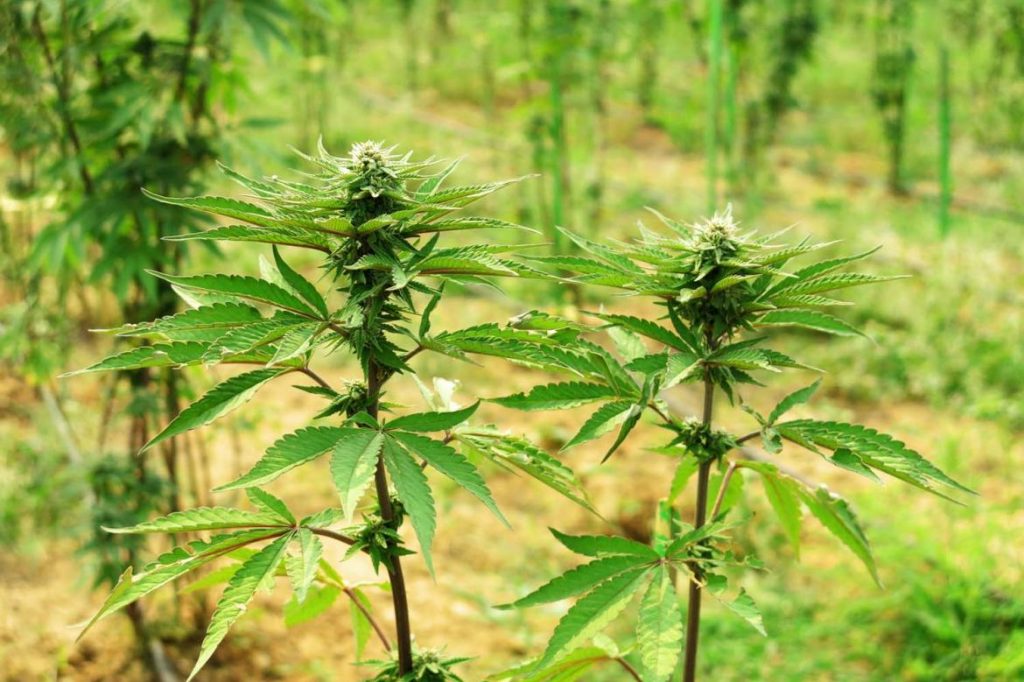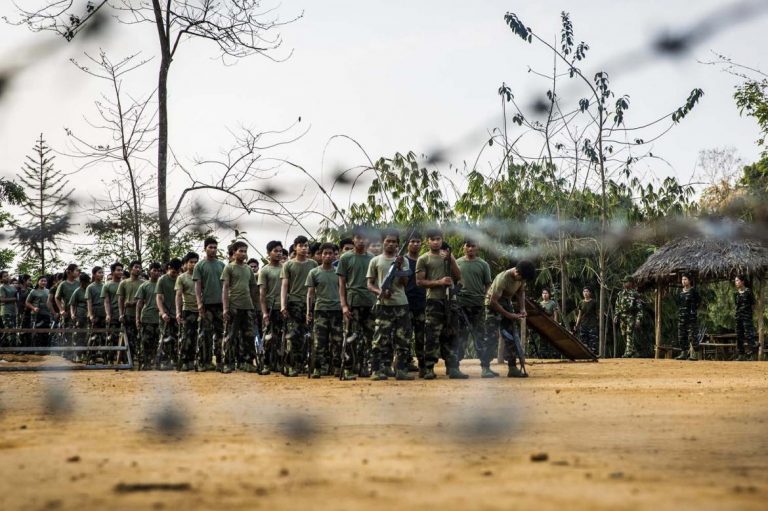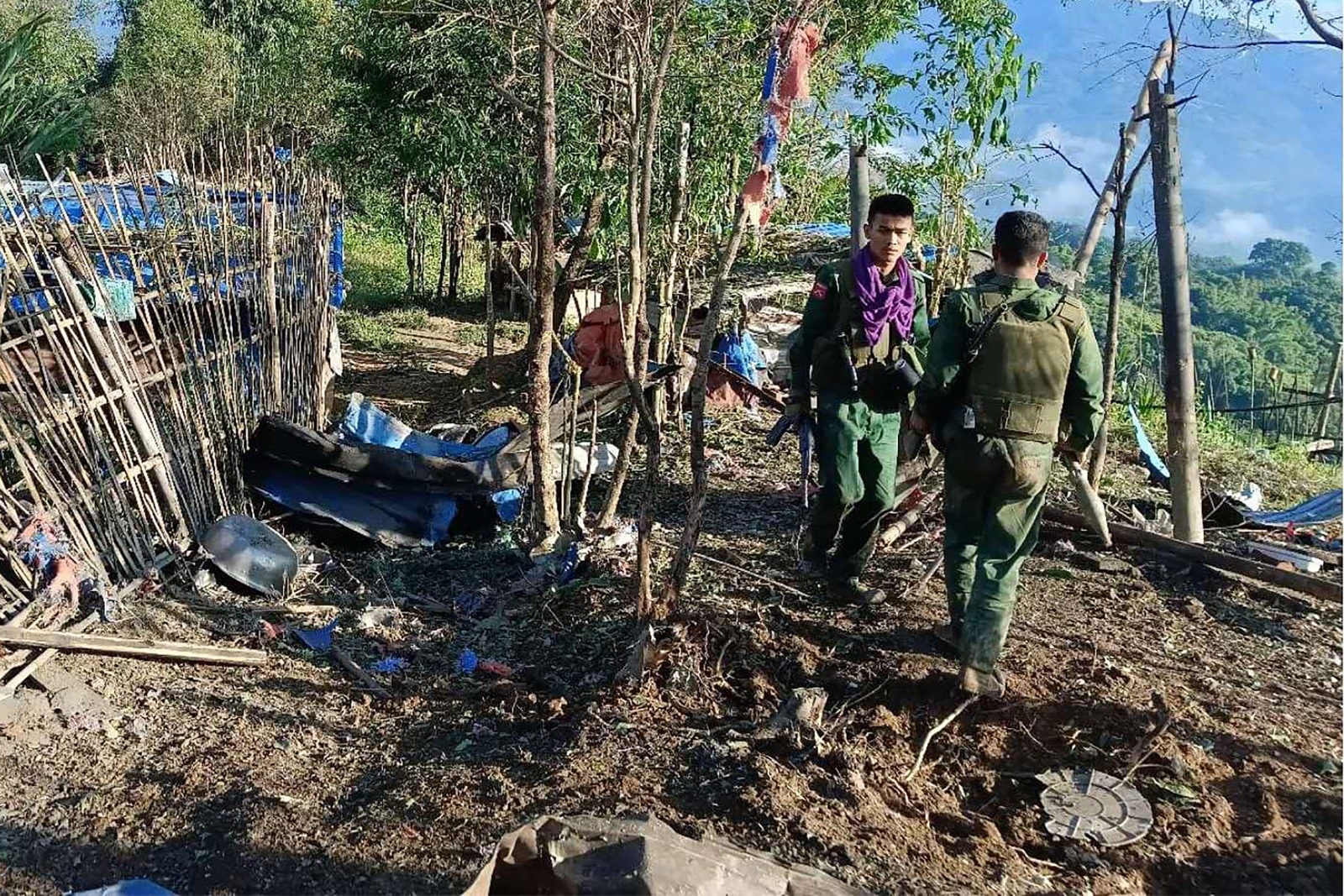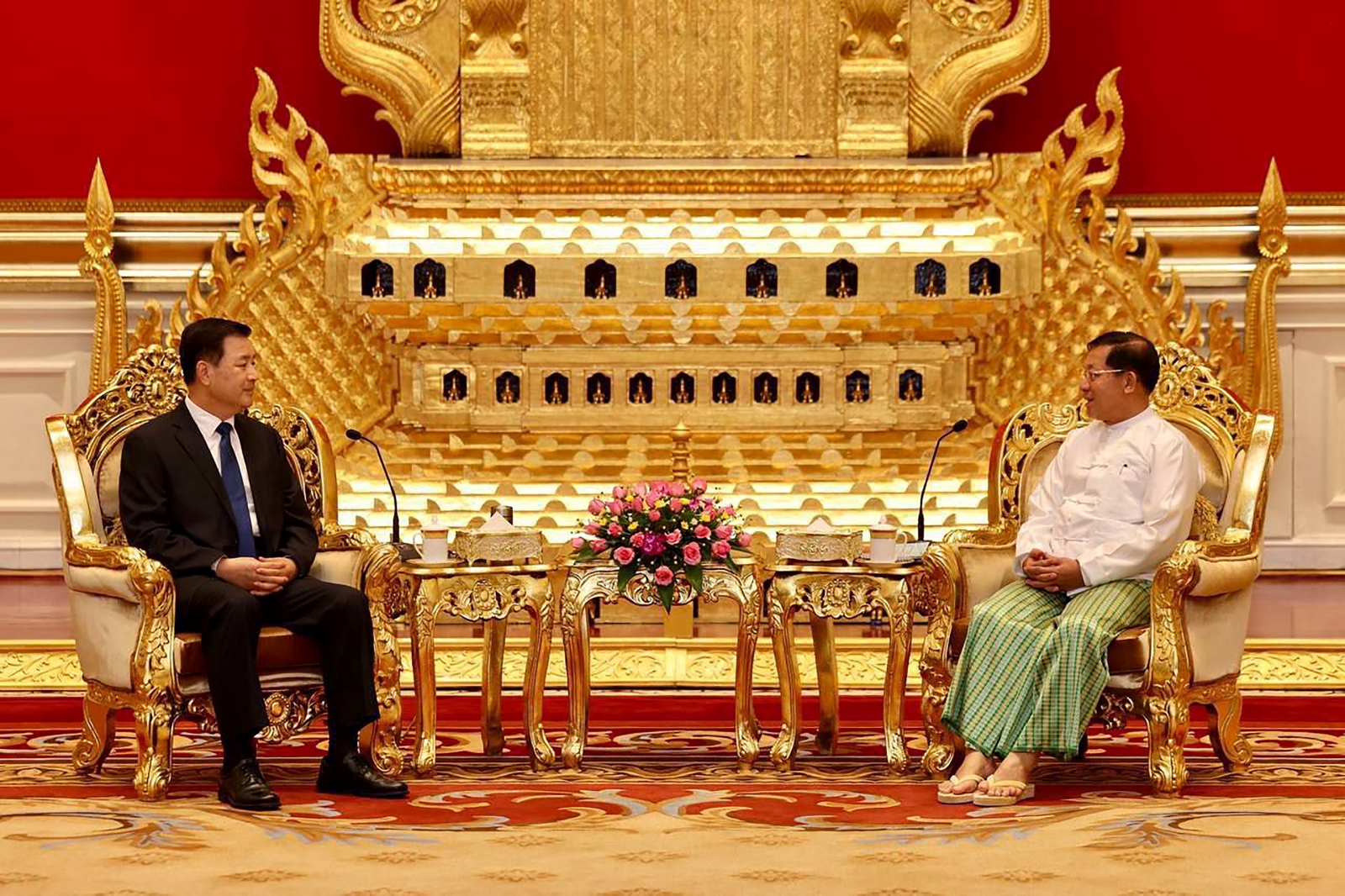Investors from China are keen to grow non-intoxicating strains of cannabis in Myanmar for medicinal or industrial use, but that won’t happen without change to the anti-narcotics law.
By HEIN THAR | FRONTIER
COMPANIES IN China have expressed strong interest in growing cannabis for medicinal and industrial purposes in Myanmar, although legal cultivation of even non-intoxicating strains of the plant, known as hemp, would require changes to the Narcotic Drugs and Psychotropic Substances Law.
The moves come as demand soars in many countries for products made from cannabis to treat a range of ailments, including chronic pain, and for making paper, textiles, construction materials and health food.
More than 30 nations have legalised the medical use of marijuana – the name used for intoxicating strains of cannabis – including neighbouring Thailand last year, the first country in Southeast Asia to do so. Meanwhile, demand in the United States has soared in recent years for cannabidiol, or CBD, a compound extracted from hemp that is used in health and beauty oils, sprays and balms. This lucrative market is largely supplied by sprawling plantations in faraway China, where domestic CBD sales are banned.
The legal use of cannabis generates billions of dollars and it’s a market with huge potential in Myanmar, which has ample land and the right climate for the crop, and thousands of farmers eager to cash in on cultivating cannabis.
Support more independent journalism like this. Sign up to be a Frontier member.
The campaign for cannabis in Myanmar is being led by U Aung Say Toe, founder of both the Mahar Legalisation Movement Myanmar, which aims for all strains of the plant to be legalised, and the Myanmar Hemp Association, which calls for the cultivation of non-intoxicating hemp to be permitted. Although not registered officially as an organisation, the MHA has about 7,000 members, most of whom are farmers, Aung Say Toe told Frontier.
Aung Say Toe established the MHA after police raided a hemp plantation established by the III M Nutraceutical Company on a 24-acre plot at the Myotha Industrial Park in Mandalay Region’s Ngazun Township last April. The raid, which resulted in the arrest of consultant Mr John Todoroki, 63, an American, and company employees Ko Shane Latt, 37, and Ma Shunlae Myat Moe, 23, under multiple charges for allegedly breaching the anti-narcotics law, highlighted the need for legal clarity if the industry is to have a chance to flourish. Todoroki, who was granted bail of K300 million on health grounds by Myingyan District Court last July, disappeared in November, his whereabouts still unknown.
Among those who condemned the arrests was Amyotha Hluttaw MP U Aung Myo Latt (National League for Democracy, Mandalay-5), whose constituency covers Myingyan District. “Although there are countries that allow hemp to be grown commercially, our country wants to punish those who grow it with penalties as severe as life jail sentences,” said Aung Myo Latt. “They are not committing a crime.”
As Frontier reported last July, the anti-narcotics law makes no distinction between the intoxicating and non-intoxicating varieties of cannabis. The law provides for maximum penalties ranging from five years’ imprisonment for possessing the “cannabis plant” to 15 years’ imprisonment and the possibility of execution for production. However, Section 28b of the law stipulates that its harsh provisions do not apply to the production of narcotics or psychotropic substances “with the consent of the relevant ministry”.
III M Nutraceutical, which was registered as a foreign company in August 2018, had received permission the same month from the Mandalay Region government to establish the plantation to trial CBD production.
The move for legalising hemp cultivation has a key ally in Pyithu Hluttaw MP U Yan Lin, who represents Kyaiklat Township in Ayeyarwady Region for the NLD. He is a graduate of Yezin Agricultural University, to which he returned as a departmental head after acquiring a master’s degree in agriculture from the University of Queensland, Australia.
As part of its lobbying effort, the MHA arranged a meeting in October last year between Yan Lin, in his capacity as chair of the lower house agriculture, livestock breeding and fishery development and farmers affairs development committee, and companies from China, the US, Laos, and France that are interested in investing in hemp cultivation in Myanmar.
“Chinese businesspeople said they want to grow hemp and would grow it on as much land as they could get. They would start growing it today if they were allowed,” said Yan Lin.
The meeting with Yan Lin came after Singapore company Yishan Biotechnology Pte Ltd requested a permit to grow medical marijuana at a meeting last July with Minister for Health and Sports U Myint Htwe. The company said it was prepared to invest about “US$1 billion” in a facility to produce medical marijuana, according to the ministry’s director-general, Dr Moe Swe, who attended the meeting.
Lower house MP Yan Lin says he supports legalising the cultivation of cannabis for medical or industrial use largely because it would benefit farmers. “I want it to be legalised as soon as possible,” he said, adding that Myanmar’s central Dry Zone and Ayeyarwady and Bago regions were ideal for growing hemp. Moreover, he said, “The cost of inputs such as fertiliser is not high and the hemp can be harvested every four months.”
His committee supports amendments to the anti-narcotics law to permit the cultivation of plants with a tetrahydrocannabinol, or THC, content of up to 0.3 percent, beyond which cannabis could be considered intoxicating.
Amendments made in 2018 to the 1993 Narcotic Drugs and Psychotropic Substances Law preserved the blanket prohibition of all forms of cannabis. A moderation of the ban in the law, with its ambiguous line about waivers from a “relevant ministry”, could conceivably be introduced into the new by-laws, which are still being drafted.
However, U Htay Kywe, a lawyer and owner of an agricultural company, Shwe Wah Myay Agriculture Co, said changing the law was preferable. He acknowledged the global expansion of the legal hemp industry, but added that “if this business is conducted without a strong law, it will be risky”. “We will need precise language and guidelines in any such law to be able to grow hemp legally,” Htay Kywe said.
The China-Myanmar Economic Cooperation and Development Forum held last November in the Yunnan Province town of Ruili, opposite the busy Myanmar border town of Muse, included a dedicated summit on industrial hemp.
At the summit, many agro-industry business people from Yunnan and Hong Kong discussed prospects for growing hemp in Myanmar, said the MHA’s Aung Say Toe, who was a guest at the event. Interested companies included the Hama Investment Group, ALD Hemp Industry and Boyalife, he said, adding that if growing hemp was legalised in Myanmar it could not avoid the involvement of Chinese companies.
However, Aung Say Toe said he was concerned about Myanmar farmers becoming too reliant on Chinese investment. Farmers who grow watermelons and other crops or fruit for sale in China had become victims of speculation by Chinese investors, he claimed.
Htay Kywe said Myanmar would need to ensure that it made finished products from hemp, rather than supplying raw material to China for processing. “If we can’t do that, China will take advantage of hemp cultivation in Myanmar and we will effectively be working for China,” he said.
However, Yan Lin said he was encouraged by the interest from Chinese companies. Based on meetings he had had with the ministries of health and of home affairs, he expects amendments to the anti-narcotics law to enable hemp cultivation to be made this year.







